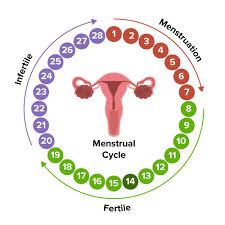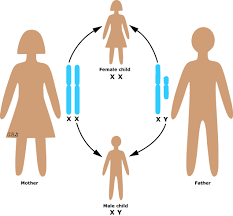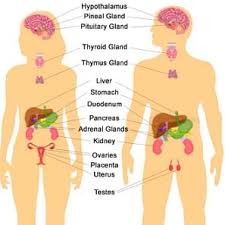
CBSE Class 8 Science Notes Chapter 7: Here are the notes for Chapter 7 of CBSE Class 8 Science titled Reaching the Age of Adolescence. This period is marked by significant physical, emotional, and hormonal changes as the body prepares for adulthood.
The chapter covers topics like puberty, secondary sexual characteristics, and the role of hormones in regulating these changes. It also discusses the importance of maintaining personal hygiene and a balanced diet during this stage. Understanding adolescence helps students navigate this crucial phase of life with greater awareness and confidence.CBSE Class 8 Science Notes Chapter 7 Reaching the Age of Adolescence Overview
These notes are prepared by subject experts of Physics Wallah for CBSE Class 8 Science Chapter 7, Reaching the Age of Adolescence. The overview provides a clear understanding of the critical changes that occur during adolescence, the period when a child transitions into adulthood. It covers essential concepts such as the onset of puberty, the development of secondary sexual characteristics, and the role of hormones in regulating these changes. The notes also emphasize the significance of maintaining good personal hygiene and a balanced diet during this crucial phase. These expert-prepared notes are designed to help students grasp the key points of the chapter effectively.CBSE Class 8 Science Notes Chapter 7 PDF Download
The PDF link for CBSE Class 8 Science Chapter 7 Reaching the Age of Adolescence is available below. This chapter covers the important changes that occur during adolescence, the stage when a child transitions into adulthood. The notes provide a detailed explanation of key topics such as puberty, the development of secondary sexual characteristics and the role of hormones in these processes. You can download the PDF for a comprehensive overview and to aid in your studies.CBSE Class 8 Science Notes Chapter 7 PDF
Quick Revision Notes of CBSE Class 8 Science Chapter 7
Below we have provided CBSE Class 8 Science Notes Chapter 7 Reaching the Age of Adolescence for students to help them understand the chapter better and to score good marks in their examination.Adolescence and Puberty
Adolescence is the phase of life when a child gradually transitions into adulthood, marked by significant physical, emotional, and psychological changes. This period typically begins around the age of 11 and lasts until 18 or 19 years. Adolescents, commonly referred to as "teenagers," experience rapid growth and development, both physically and mentally. The body undergoes important changes during this time, leading to reproductive maturity. Puberty is a crucial aspect of adolescence. It is the period during which the human body undergoes changes in the reproductive organs, resulting in sexual maturity. These changes are driven by hormones and include the development of secondary sexual characteristics, such as the deepening of the voice in boys and the development of breasts in girls. Puberty often begins slightly earlier in girls, usually around the ages of 10 to 12, while in boys, it typically starts between the ages of 12 to 14. These developments prepare adolescents for adulthood, both in terms of physical capabilities and reproductive functions.Changes at Puberty
As you reach puberty, your body goes through many changes, some of which are similar for everyone, while others may differ based on your gender and individual growth. Puberty brings about physical, mental, intellectual, and emotional maturity. Some of the common changes include an increase in height, changes in body shape, changes in voice, and the development of sex organs.Secondary Sexual Characteristics
Secondary sexual characteristics are visible changes that occur in boys and girls during puberty. These characteristics help distinguish the two sexes and are not directly involved in reproduction. Here are some of the key changes:Boys:
- Growth of facial hair.
- Growth of body hair, including underarm, abdominal, chest, and pubic hair.
- Chest and shoulders become wider, and the body becomes more muscular.
- Skin becomes rougher and more porous, with increased activity in sweat and sebaceous glands.
- The larynx, or Adam’s apple, becomes more prominent, and the voice deepens and becomes huskier.
Girls:
- Enlargement of breasts.
- Growth of body hair, especially in the underarm and pubic areas.
- Widening of the hips.
- Changes in fat distribution, with more fat accumulating below the skin, particularly at the hips, buttocks, and thighs.
- Development of secondary reproductive organs.
Mental and Physical Changes at Puberty
During puberty, both mental and physical changes occur as the body prepares for adulthood. These changes can impact how you think, feel, and interact with others. One of the significant developments during this period is the growth and maturation of the reproductive organs.Reproductive Health
Reproductive health refers to the proper growth and overall well-being of the reproductive organs, which is essential for maintaining physical and mental health. During adolescence, as the reproductive organs develop and become functional, it is important to focus on both physical and mental well-being to ensure a healthy transition into adulthood. Maintaining reproductive health involves understanding these changes, practicing good hygiene, and leading a healthy lifestyle to support the body's development.Menstrual Cycle
 The menstrual cycle is a crucial aspect of female reproductive health, beginning at puberty. The onset of this cycle is known as ‘menarche.’ It involves a series of cyclic changes in the ovaries and uterus, which occur simultaneously.
In the ovaries, an ovum (egg) develops and matures each month. Once mature, the egg is released into the fallopian tube. Concurrently, the uterus prepares for a potential pregnancy by developing a thick, spongy inner lining rich in blood vessels.
If fertilization of the egg occurs, pregnancy begins, and the lining of the uterus supports the developing embryo. If fertilization does not take place, the egg and the thickened uterine lining, along with its blood vessels, are shed from the body. This shedding results in menstruation, which is the bleeding experienced by women.
The menstrual cycle continues throughout a woman's reproductive years until it ceases, typically between the ages of 45 and 52, marking the onset of menopause. The years between menarche and menopause define a woman's reproductive age when she is capable of conceiving and bearing a child.
The menstrual cycle is a crucial aspect of female reproductive health, beginning at puberty. The onset of this cycle is known as ‘menarche.’ It involves a series of cyclic changes in the ovaries and uterus, which occur simultaneously.
In the ovaries, an ovum (egg) develops and matures each month. Once mature, the egg is released into the fallopian tube. Concurrently, the uterus prepares for a potential pregnancy by developing a thick, spongy inner lining rich in blood vessels.
If fertilization of the egg occurs, pregnancy begins, and the lining of the uterus supports the developing embryo. If fertilization does not take place, the egg and the thickened uterine lining, along with its blood vessels, are shed from the body. This shedding results in menstruation, which is the bleeding experienced by women.
The menstrual cycle continues throughout a woman's reproductive years until it ceases, typically between the ages of 45 and 52, marking the onset of menopause. The years between menarche and menopause define a woman's reproductive age when she is capable of conceiving and bearing a child.
Boy or Girl: Sex Determination
 In humans, sex determination is based on the combination of sex chromosomes present in the cells. Each human cell contains 23 pairs of chromosomes, including one pair of sex chromosomes: X and Y. Females have two X chromosomes (XX), while males have one X and one Y chromosome (XY).
During reproduction, gametes (egg and sperm) carry only one set of chromosomes. An unfertilized egg always contains one X chromosome. However, male sperm carry either an X or a Y chromosome.
When a sperm with an X chromosome fertilizes an egg, the resulting embryo will develop into a female (XX). Conversely, when a sperm with a Y chromosome fertilizes an egg, the resulting embryo will develop into a male (XY). This combination of sex chromosomes determines the sex of the offspring.
In humans, sex determination is based on the combination of sex chromosomes present in the cells. Each human cell contains 23 pairs of chromosomes, including one pair of sex chromosomes: X and Y. Females have two X chromosomes (XX), while males have one X and one Y chromosome (XY).
During reproduction, gametes (egg and sperm) carry only one set of chromosomes. An unfertilized egg always contains one X chromosome. However, male sperm carry either an X or a Y chromosome.
When a sperm with an X chromosome fertilizes an egg, the resulting embryo will develop into a female (XX). Conversely, when a sperm with a Y chromosome fertilizes an egg, the resulting embryo will develop into a male (XY). This combination of sex chromosomes determines the sex of the offspring.
CBSE Class 8 Science Notes Chapter 7 FAQs
What is adolescence?
Adolescence is the developmental stage between childhood and adulthood, typically occurring between the ages of 11 and 19. It involves significant physical, emotional, and psychological changes as a person matures into an adult.
What changes occur during puberty?
During puberty, individuals experience growth spurts, changes in body shape, development of secondary sexual characteristics (such as facial hair in boys and breast development in girls), and hormonal changes. These changes prepare the body for reproductive maturity.
What are secondary sexual characteristics?
Secondary sexual characteristics are physical traits that emerge during puberty and help distinguish males from females. In boys, these include facial hair, a deeper voice, and increased muscle mass. In girls, they include breast development, wider hips, and increased body fat distribution in specific areas.
How does the menstrual cycle work?
The menstrual cycle is a monthly process in which the female reproductive system prepares for pregnancy. It involves the maturation and release of an egg from the ovaries and the thickening of the uterine lining. If fertilization does not occur, the lining is shed through menstruation.
What is the role of hormones during adolescence?
Hormones are chemical messengers produced by endocrine glands that regulate various bodily functions. During adolescence, hormones such as estrogen and testosterone drive the physical and emotional changes associated with puberty, including growth, development of reproductive organs, and changes in mood.
🔥 Trending Blogs
Talk to a counsellorHave doubts? Our support team will be happy to assist you!

Check out these Related Articles
Free Learning Resources
PW Books
Notes (Class 10-12)
PW Study Materials
Notes (Class 6-9)
Ncert Solutions
Govt Exams
Class 6th to 12th Online Courses
Govt Job Exams Courses
UPSC Coaching
Defence Exam Coaching
Gate Exam Coaching
Other Exams
Know about Physics Wallah
Physics Wallah is an Indian edtech platform that provides accessible & comprehensive learning experiences to students from Class 6th to postgraduate level. We also provide extensive NCERT solutions, sample paper, NEET, JEE Mains, BITSAT previous year papers & more such resources to students. Physics Wallah also caters to over 3.5 million registered students and over 78 lakh+ Youtube subscribers with 4.8 rating on its app.
We Stand Out because
We provide students with intensive courses with India’s qualified & experienced faculties & mentors. PW strives to make the learning experience comprehensive and accessible for students of all sections of society. We believe in empowering every single student who couldn't dream of a good career in engineering and medical field earlier.
Our Key Focus Areas
Physics Wallah's main focus is to make the learning experience as economical as possible for all students. With our affordable courses like Lakshya, Udaan and Arjuna and many others, we have been able to provide a platform for lakhs of aspirants. From providing Chemistry, Maths, Physics formula to giving e-books of eminent authors like RD Sharma, RS Aggarwal and Lakhmir Singh, PW focuses on every single student's need for preparation.
What Makes Us Different
Physics Wallah strives to develop a comprehensive pedagogical structure for students, where they get a state-of-the-art learning experience with study material and resources. Apart from catering students preparing for JEE Mains and NEET, PW also provides study material for each state board like Uttar Pradesh, Bihar, and others
Copyright © 2026 Physicswallah Limited All rights reserved.









